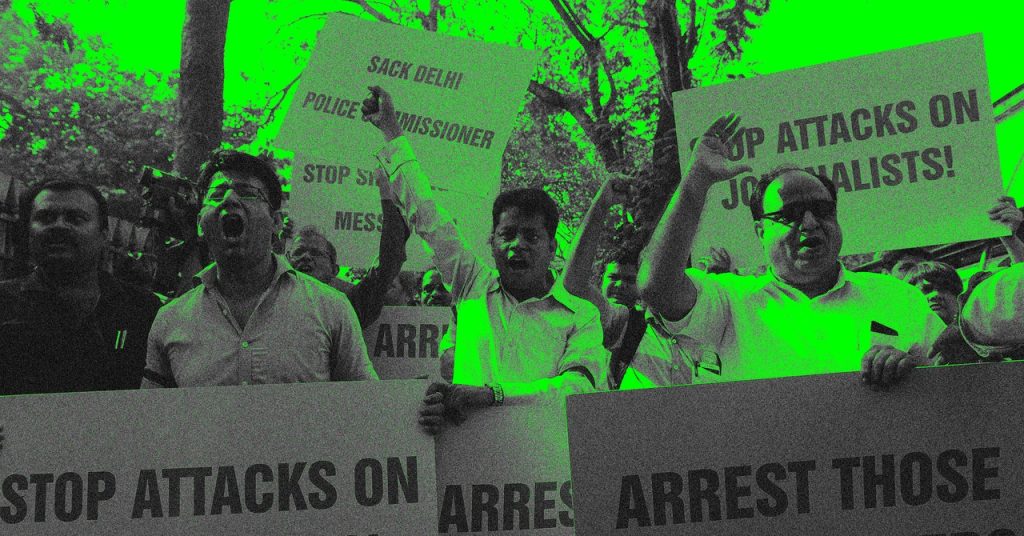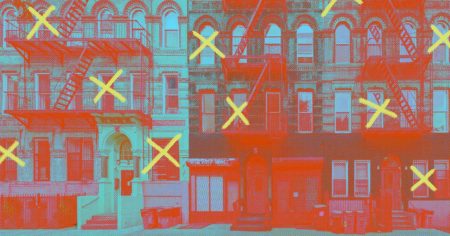A special unit of the Delhi Police, reporting directly to Narendra Modi’s union government, this morning seized the laptops and phones of journalists and satirists associated with a news website, Newsclick.in. The site has been charged under a law usually used to deal with terrorism suspects, and two journalists have been detained.
Journalists Abhisar Sharma, Aritry Das, and Bhasha Singh posted about the raids on X, the site formerly known as Twitter, confirming that Delhi Police had seized their laptops and phones.
The raids are the latest in a string of actions against journalists in India under the Modi government, which has increasingly tried to control the national narrative offline and online by clamping down on independent media, while allowing pro-government media to allegedly spread disinformation and hate against minorities with impunity.
“This is a completely McCarthyist tactic and approach, building a hysteria in sections of the media, and then proceeding with a ruthless silencing of dissent and dissidents,” Veteran journalist P Sainath says. “It will only intensify as the general elections in India get close.”
Newsclick has been under investigation since August, when a New York Times article alleged that it had spread Chinese propaganda and was being funded by American tech mogul Neville Roy Singham. The left-leaning news site, known for publishing anti-establishment stories, denied the allegations.
The Enforcement Directorate, which investigates money laundering, froze Newsclick’s assets in August. The directorate previously raided Newsclick’s premises and the homes of some of its senior staff in 2021.
This is not the first time the law enforcement agencies have targeted anti-establishment journalists and news publications. In February this year, income tax officials raided the BBC’s offices in India, weeks after it had released a documentary critical of Modi and the rise of Hindu nationalism. In July 2021, tax authorities opened an investigation into Dainik Bhaskar, one of the largest newspapers in India, which had exposed the state’s handling of Covid-19. Independent websites, including The Quint, have also been subjected to similar raids, where devices of journalists were seized. In October last year, the Delhi Police seized the electronic devices of five journalists working with The Wire after a complaint by Amit Malviya, the head of the IT Cell of Modi’s party.
Since Modi came to power in 2014, the Indian government has charged several journalists under the Unlawful Activities (Prevention) Act, which was previously only invoked while dealing with terrorist organizations. The government has been accused of abusing the law in the past and of planting evidence on electronic devices. Sixteen activists, scholars and journalists were arrested in connection with a riot in Pune, Maharashtra in 2018 under the same UAPA laws. However, forensic analysis later revealed that the evidence against them was planted on the devices of at least two of the arrested. The case continues to drag on. Several of the activists languish in jail; some have recently received bail. One died in prison, awaiting justice.
The Internet Freedom Foundation, an NGO, said in a statement on X that it is concerned with the seizure of digital devices, which “violate right to privacy and negatively impact press freedom in derogation of due process of law.”
The Press Club of India expressed its solidarity with Newsclick. “The Press Club of India is deeply concerned about the multiple raids conducted on the houses of journalists and writers associated with NewsClick. We are monitoring the developments and will be releasing a detailed statement,” it said.
Saba Naqvi, a Delhi-based journalist, says the raids seem intended to send a chilling message to the rest of the independent media. “How can you target individual journalists while investigating the business model of a website?” she says. “The journalists in question have done important ground reporting and analytical commentary regarding India. They are people who care about Indian democracy. The developments are deeply disturbing.”
Read the full article here









